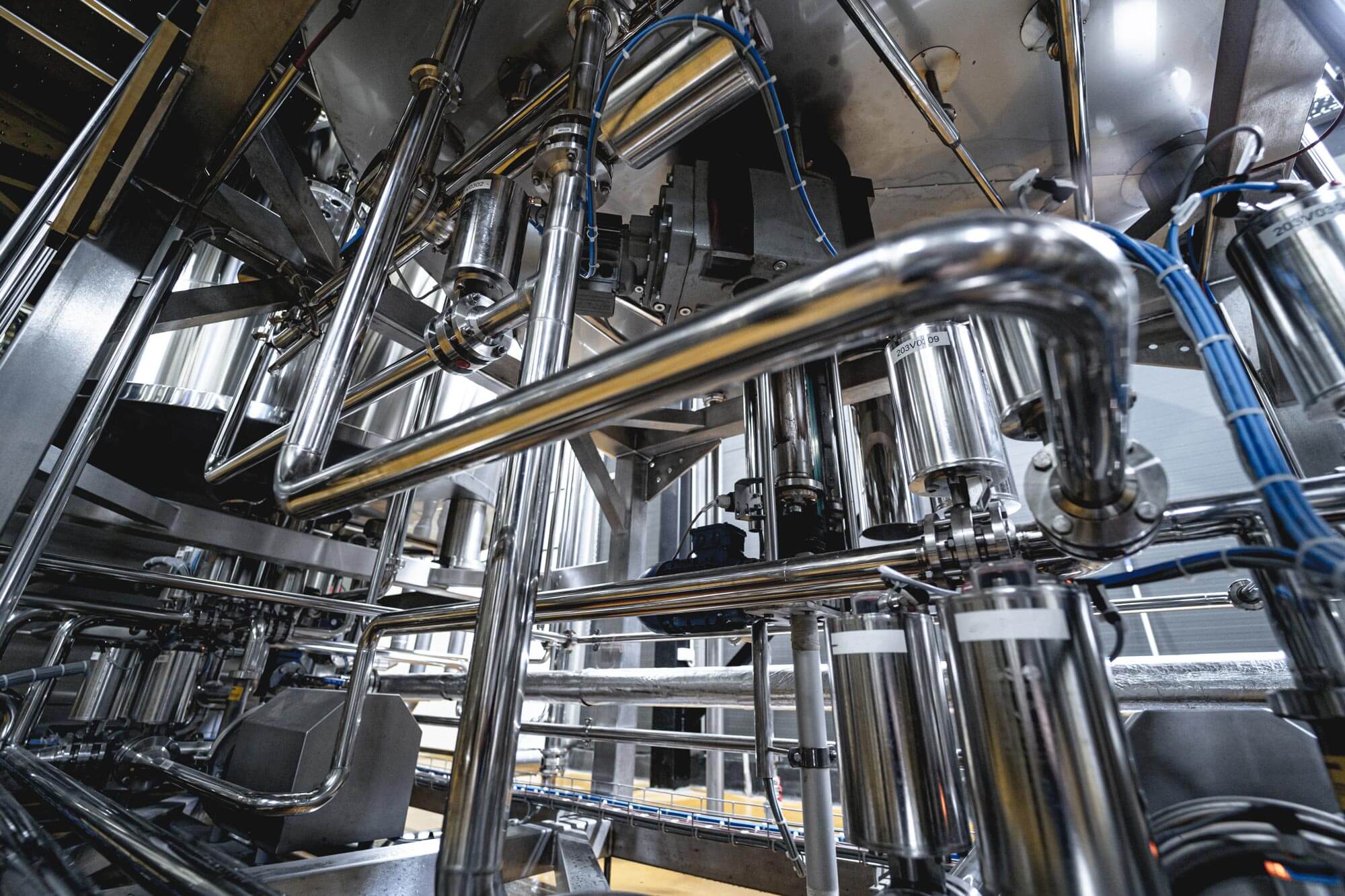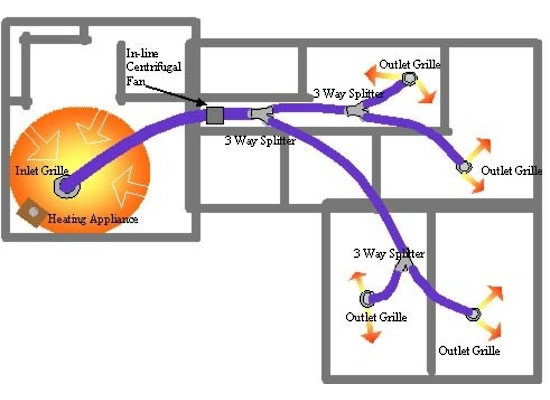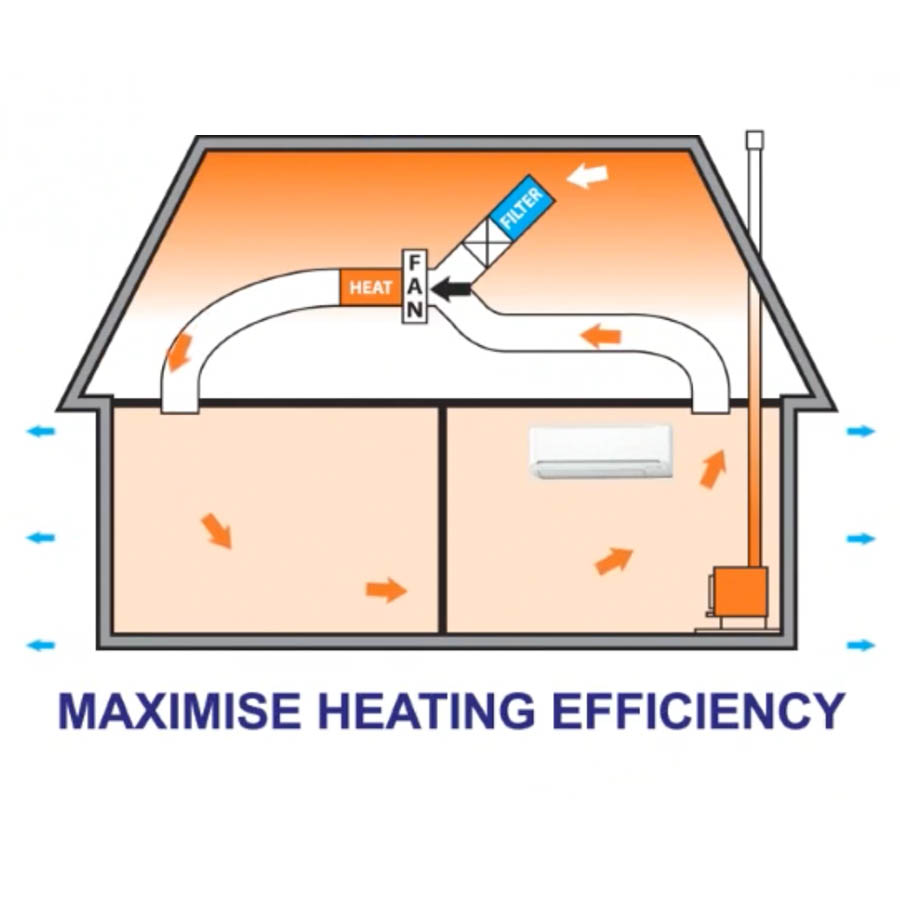Are DVS Heat Transfer Systems Designed for High-Performance Electronics Cooling?
The Function of Heat Transfer Solutions in Sustainable Power Solutions for the Future
Heat transfer systems are crucial in the pursuit for sustainable power solutions. They enhance thermal energy management, boosting the efficiency of renewable innovations. By using systems like conduction, convection, and radiation, these systems reduce power losses. Their function in solar thermal and geothermal applications is particularly significant. As advancements emerge, the capacity for more advancements elevates crucial inquiries regarding future power methods. What growths will shape the landscape of sustainable energy?
Understanding Heat Transfer Systems

The Relevance of Thermal Energy Administration
Efficient thermal energy monitoring is important for optimizing power efficiency and minimizing waste in different systems. By regulating temperature level and enhancing Heat transfer processes, companies can markedly reduce energy usage and operational costs. Efficient monitoring includes the application of innovative technologies and practices that monitor and manage thermal problems within systems, making certain that energy sources are used successfully. On top of that, proper thermal energy administration adds to reducing greenhouse gas emissions, straightening with global sustainability goals. It likewise enhances system integrity and performance, resulting in enhanced product top quality and longer tools life expectancy. Ultimately, prioritizing thermal power administration is a vital step towards producing a lot more lasting power remedies and fostering an accountable strategy to power intake in industrial and residential contexts.
Applications of Heat Transfer in Renewable Resource
While numerous renewable resource resources assure sustainability, the efficient application of Heat transfer plays a crucial duty in their efficiency. In wind power systems, Heat transfer is utilized for turbine part air conditioning, improving performance and long life. Geothermal power depends on effective Heat exchange between the earth's subsurface and the fluid circulating in the system, optimizing power removal. Biomass energy processes also profit from Heat transfer, as it assists in transforming organic materials right into functional gas via pyrolysis and gasification. In addition, in hydropower, preserving optimal temperatures in storage tanks can enhance energy result. Each of these applications shows the vital significance of Heat transfer systems in enhancing renewable power innovations, ultimately adding to a much more sustainable power future.
Enhancing Solar Thermal Power Efficiency
As solar thermal power systems proceed to develop, boosting their performance has come to be vital for making the most of energy output. Advancements in Heat transfer technologies, such as enhanced thermal storage products and ingenious Heat exchangers, play a significant duty in enhancing efficiency. By utilizing advanced products that have premium thermal conductivity, systems can catch and transfer Heat more successfully. Additionally, integrating monitoring systems that adhere to the sun's path assurances that enthusiasts obtain perfect solar exposure throughout the day. Making use of nanotechnology in solar absorbers can additionally enhance energy absorption rates. Additionally, incorporating computerized control systems assists control temperature levels and take care of power circulation effectively, bring about reduced losses and improved general system effectiveness. These improvements pave the method for more sustainable solar thermal energy options in the future.
Geothermal Heating: A Lasting Service
Geothermal home heating presents a practical choice for lasting energy, providing significant environmental benefits through reduced greenhouse gas emissions. Its performance and cost-effectiveness make it an eye-catching choice to standard furnace. Difficulties connected to execution has to be resolved to optimize its prospective effect.
Environmental Benefits of Geothermal
Standard home heating methods contribute considerably to greenhouse gas discharges, geothermal home heating presents a compelling option that decreases environmental influence. By utilizing the Planet's internal Heat, geothermal systems make use of a renewable resource resource, noticeably minimizing reliance on fossil fuels. This approach generates very little carbon exhausts, making it a cleaner alternative for domestic and business heating. In addition, geothermal systems promote energy effectiveness, as they need much less energy contrasted to traditional heating systems. DVS Heat Transfer Systems. The use of geothermal power additionally helps in decreasing air these details contamination, enhancing regional air top quality and public health. As a lasting option, geothermal heating supports environment change mitigation initiatives, positioning itself as an important component in the change towards a greener future
Efficiency and Cost-Effectiveness
Just how does geothermal heating gauge up in regards to efficiency and cost-effectiveness compared to standard heating unit? Geothermal home heating shows remarkable effectiveness, usually attaining a coefficient of performance (POLICE OFFICER) of 3 to 5, indicating it creates three to five devices of Heat for each system of electrical power eaten. This efficiency equates into lower operating expenses, specifically in areas with stable geothermal sources. First installation costs can be greater than traditional systems; however, lasting financial savings on energy bills and reduced upkeep expenditures can balance out these upfront financial investments. Furthermore, numerous federal governments incentivize geothermal systems with rebates and tax credit ratings, boosting their cost-effectiveness. Generally, geothermal heating emerges as a economically sensible and sustainable option to more standard home heating services.
Execution Challenges and Solutions
Various difficulties can hamper the prevalent execution of geothermal heating unit, despite their clear advantages as a sustainable energy service. High preliminary setup expenses often deter house owners and financiers, making financing a substantial obstacle. Furthermore, the geographical restrictions of suitable geothermal sites restrict availability in certain regions. Regional laws and permitting processes can likewise complicate job growth, leading to hold-ups. Public recognition and understanding of geothermal systems remain low, hindering approval. To address these challenges, targeted education projects can boost open secret, while government rewards might alleviate financial burdens. Working together with local authorities to simplify guidelines may facilitate smoother task approvals, eventually advertising the adoption of geothermal home heating as a viable, sustainable power choice.
Technologies in Heat Transfer Technologies
Technologies in Heat transfer innovations play a crucial important source function in boosting power performance and sustainability. Advanced Heat exchangers and phase change products go to the forefront of these developments, offering substantial renovations in thermal administration. These innovations not only maximize power usage yet also add to lowering environmental impact in numerous applications.
Advanced Heat Exchangers
Advanced Heat exchangers play a necessary function in enhancing power performance across numerous applications in lasting power options. These gadgets facilitate the transfer of Heat in between two or even more liquids, significantly decreasing power intake in processes such as commercial home heating, cooling, and power generation. Technologies in products and design, such as the usage of nanofluids and small arrangements, have resulted in boosted thermal efficiency and reduced size demands. Furthermore, innovations in digital surveillance and control systems enable for optimized operation, more enhancing performance. By reducing waste Heat and taking full advantage of power recovery, progressed Heat exchangers contribute to reduce carbon impacts and support the change towards eco-friendly technologies. Their continued development is essential for achieving worldwide power sustainability objectives.
Stage Change Materials
The integration of phase adjustment products (PCMs) into Heat transfer modern technologies represents a significant innovation in power management and effectiveness. PCMs absorb and launch thermal power during their phase changes, making it possible for effective temperature level guideline in building products and power systems. By storing excess Heat throughout top periods and releasing it when need boosts, PCMs add to fill moving and power preservation - DVS Heat Transfer Systems. This capacity boosts the efficiency of eco-friendly energy systems, particularly in solar thermal applications. Additionally, PCMs can improve the thermal comfort of interior atmospheres, reducing reliance on conventional heating and cooling down approaches. As developments in PCM solutions proceed to arise, their function in sustainable energy options is positioned to expand, supplying encouraging methods for future research study and application

Future Prospects for Heat Transfer in Sustainable Power
As the need for lasting energy solutions proceeds to rise, the role of Heat transfer systems is becoming significantly crucial in forming future innovations. Technologies in products and layouts are anticipated to enhance performance in Heat transfer, reducing energy losses in different applications. The integration of innovative thermal storage systems, such as stage change materials and thermochemical storage, will make it possible for better administration of energy resources. Research study right into nanofluids and biomimetic Heat exchangers may better optimize thermal performance. Additionally, the adoption of clever technologies will certainly permit real-time tracking and adaptive control of Heat transfer procedures. These advancements are poised to substantially add to the total performance and sustainability of power systems, leading the way for a more energy-efficient future.
Frequently Asked Inquiries
Just How Can Individuals Execute Heat Transfer Equipment in the house?

People can execute Heat transfer systems in the house by setting up energy-efficient appliances, utilizing glowing home heating, and maximizing insulation. These procedures enhance energy effectiveness, decrease prices, and advertise lasting methods in residential atmospheres.

What Are the Costs Connected With Installing Heat Transfer Equipments?
The prices connected with setting up Heat transfer systems vary widely, generally including equipment, installment labor, and maintenance. Elements such as system type, home size, and neighborhood regulations substantially affect the overall expense included.
Are There Federal Government Motivations for Heat Transfer System Installations?
Government motivations for Heat transfer system setups differ by area and can consist of tax grants, credits, and refunds. These economic advantages aim to motivate fostering, inevitably promoting energy effectiveness and reducing environmental effect within communities.
How Do Heat Transfer Solutions Influence Power Bills?
Heat transfer systems notably affect power expenses by optimizing energy performance. By improving the transfer of Heat, these systems minimize power consumption, causing lower energy prices and creating a much more lasting method to energy management.
What Upkeep Is Needed for Heat Transfer Systems?
Upkeep for Heat transfer systems includes normal assessments, cleansing of elements, checking fluid degrees, making certain proper insulation, and changing used parts. These tasks assist keep effectiveness, prevent you could try this out malfunctions, and lengthen the system's operational lifespan.
These systems promote the movement of thermal power from one tool to another, allowing the transfer of Heat for cooling, energy, or home heating generation purposes. Geothermal power depends on reliable Heat exchange in between the planet's subsurface and the liquid circulating in the system, making best use of energy extraction. In addition, geothermal systems promote energy effectiveness, as they call for less power contrasted to conventional heating systems. Advanced Heat exchangers play an essential function in boosting energy performance across different applications in sustainable energy remedies. Heat transfer systems notably influence power expenses by maximizing power effectiveness.